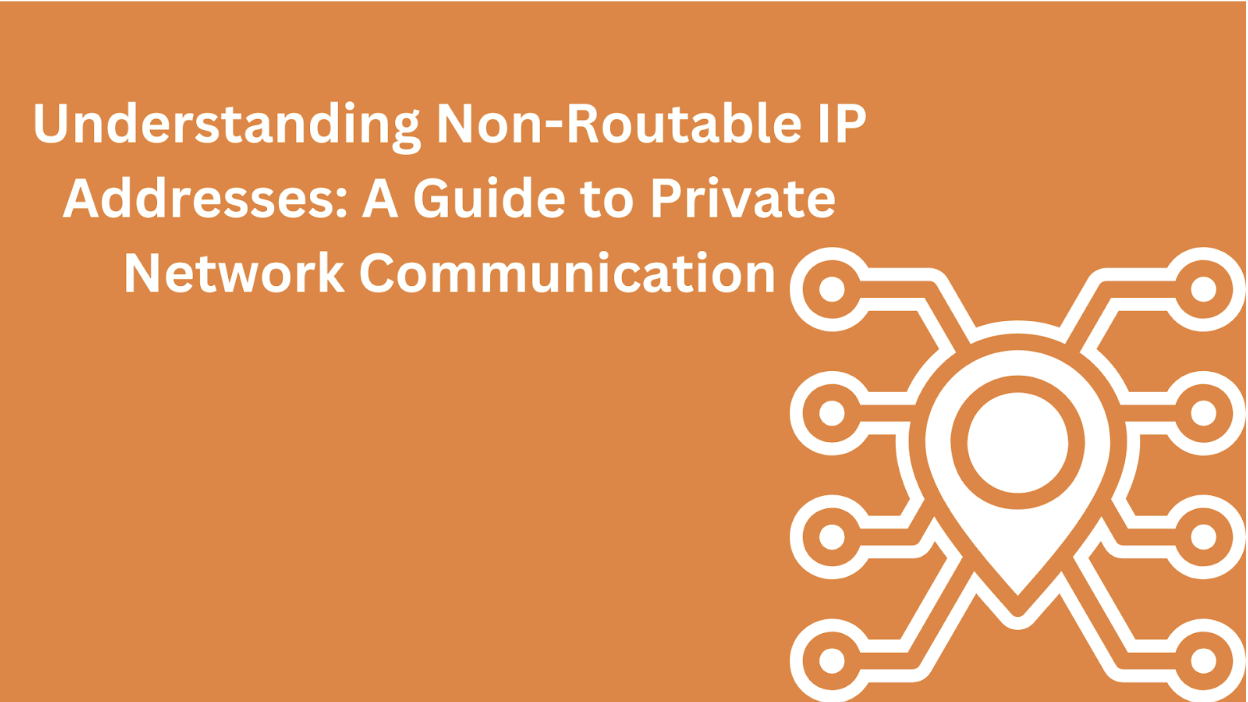Non-routable IP addresses, also known as private IP addresses, are reserved for use in private networks and are not meant to be routed on the Internet. They allow devices within a local network to communicate with each other without the need for a unique public IP address. This blog post will explore non-routable IP addresses in more detail, including their purpose, types, and common FAQs.

Non-routable IP addresses are reserved for private networks and are not globally unique. This means that they cannot be used to communicate directly over the Internet. Instead, they are used within a local network, such as a home or business network, to allow devices to communicate with each other.
There are three main ranges of non-routable IP addresses specified by the Internet Engineering Task Force (IETF):
10.0.0.0 to 10.255.255.255
This range comprises a single class A network address, which provides over 16 million private IP addresses. It is commonly used in large networks, such as corporate intranets.
172.16.0.0 to 172.31.255.255
This range comprises 16 class B network addresses, providing over 1 million private IP addresses. It is commonly used in medium to large networks.
192.168.0.0 to 192.168.255.255
This range comprises 256 class C network addresses, providing over 65,000 private IP addresses. It is commonly used in home and small office networks.
Non-routable IP addresses serve several purposes in networking:
Because non-routable IP addresses are not globally unique, they can be reused in multiple private networks without conflict.
Non-routable IP addresses allow devices within a private network to communicate with each other without being directly accessible from the internet, providing an additional layer of security.
By using non-routable IP addresses within private networks, organizations can conserve public IP addresses, which are globally unique and in limited supply.

Non-routable IP addresses play a crucial role in networking by allowing devices within private networks to communicate securely with each other. Network administrators can effectively manage and secure their networks by understanding the purpose and types of non-routable IP addresses.
No, non-routable IP addresses cannot be used to communicate over the Internet. They are intended for use within private networks only.
Devices within a private network can access the internet through a network address translation (NAT) device, which translates their non-routable IP addresses to a public IP address.
Yes, two private networks can use the same non-routable IP address ranges without conflict, as long as they are not directly connected.
Non-routable IP addresses provide a level of security by isolating devices within a private network from the internet. However, additional security measures, such as firewalls, should be implemented to protect against threats within the network.